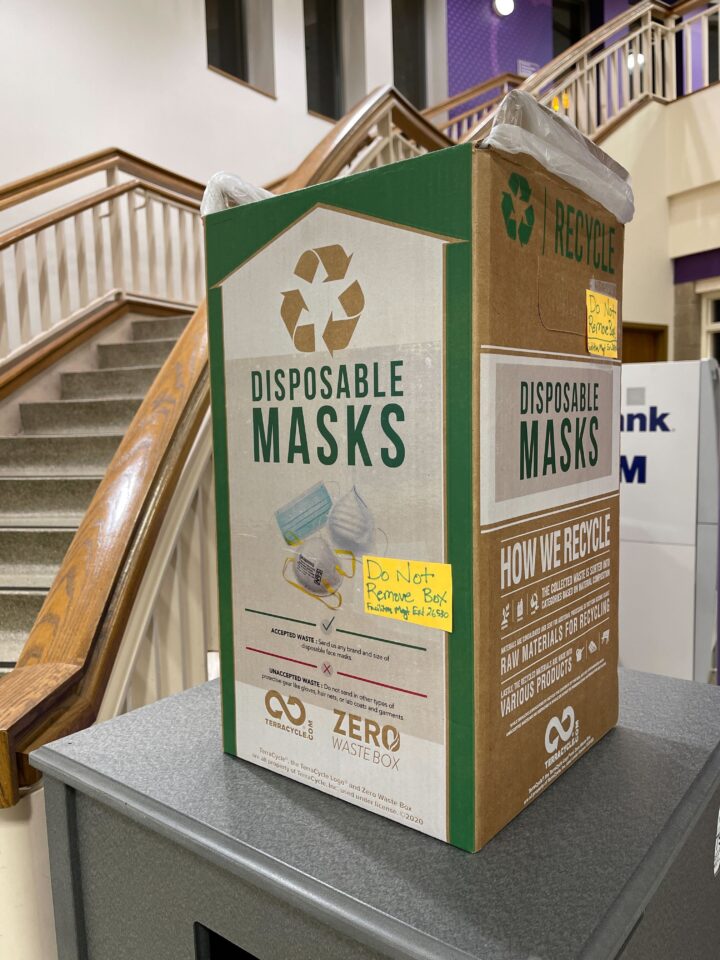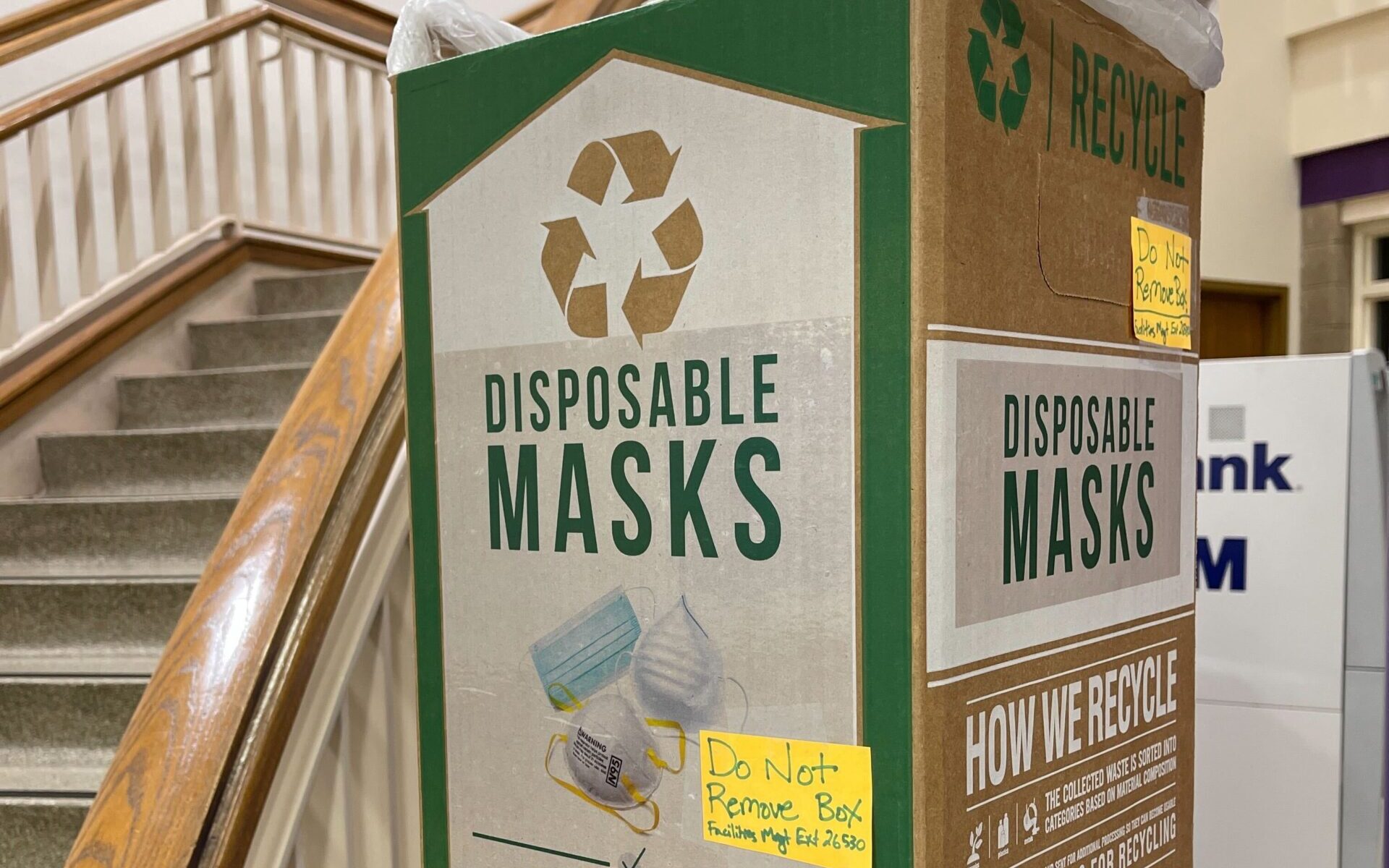
The University of St Thomas, following calls from the Catholic Church to combat climate change, introduced a number of new guidelines, tools, policies and commitments to reduce the university’s carbon footprint in a statement released Nov. 4. The major commitments include a new mask recycling process on campus and the Board of Trustees committing to divest from all fossil fuels in the next 5 years.
The commitment to divest from all fossil fuel investments comes after a marathon of new commitments and policies were introduced on campus, including a partnership with Terracycle to reduce waste stemming from masks. The boxes do not accept cloth or paper masks.
“A major pillar of our commitment to the common good is caring for God’s creation,” St. Thomas President Julie Sullivan said in a statement to the St. Thomas Newsroom. “And joining this movement to not only divest from fossil fuels but invest in solutions such as renewable energy is in line with that mission.”
Pope Francis, who published a letter titled Laudato Si’: On Care for Our Common Home in 2015, outlined the Catholic Church’s official position on climate change, and the subsequent Laudato Si’ Action Plan, which aims to reach carbon neutrality by 2035. Pope Francis recently renewed these calls and urged political and economic leaders to show courage and long-range vision when it comes to climate change.
“The University of St. Thomas has a long-standing commitment to carbon neutrality,” Sullivan said in the statement. “Which means we must not only be responsible for our direct emissions, but also think about the impact of our investments.”
The university’s actions come as climate change is becoming a growing concern among Americans; about 6 out of 10 Americans believe that the pace of global warming is speeding up according to a recent survey from The Associated Press-NORC Center for Public Affairs Research and the Energy Policy Institute at the University of Chicago.
The university released its Sustainability Strategic Plan in 2019, which outlines the five year commitment to reducing waste created on campus.
Elijah Todd-Walden can be reached at todd5861@stthomas.edu.



